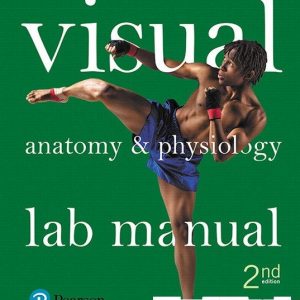This is completed downloadable of Groups Process and Practice Corey 9th Edition Test Bank

Product Details:
- ISBN-10 : 1133945465
- ISBN-13 : 978-1133945468
- Author:
Learn to blend theory with practice in group work with GROUPS: PROCESS AND PRACTICE, the respected book that so many helpers (and helpers in training) rely on every day. Focusing on the “what is” and the “how to” of group counseling, the authors use up-to-date examples, guidelines, insights, and an enhanced diversity perspective to show you how group leaders can apply the key concepts of the group process to a variety of groups, including work with children, older adults, and in school settings.
Table of Content:
- Part 1: Introduction: Basic Issues in Group Work
- Ch 1: Introduction to Group Work
- Introduction
- An Overview of Various Types of Groups
- A Multicultural Perspective on Group Work
- Becoming a Diversity-Competent Group Counselor
- Exercises
- Ch 2: The Group Counselor
- Introduction
- The Group Counselor as a Person
- The Group Counselor as a Professional
- The Coleadership Model
- Developing a Research Orientation to Practice
- Exercises
- Ch 3: Ethical and Legal Issues in Group Counseling
- Introduction
- Ethical Issues in Group Membership
- Confidentiality
- The Role of the Leader’s Values in the Group
- The Ethical Imperative of Addressing Diversity in Group Counseling
- Social Justice Approach to Group Counseling
- Special Issues Pertaining to Sexual Orientation
- Ethical Concerns in Using Group Techniques
- Competence and Training of Group Counselors
- Guidelines for Ethical and Legal Practice
- Exercises
- Ch 4: Theories and Techniques of Group Counseling
- Introduction
- Theory as a Roadmap
- Using Group Techniques Effectively
- Viewing a Group Through a Multicultural Lens
- Relationship of Theories to Techniques
- Psychodynamic Approaches
- Experiential and Relationship-Oriented Approaches
- Cognitive Behavioral Approaches
- Postmodern Approaches
- An Integrative Approach
- Exercises
- Part 2: Group Process: Stages of Development
- Ch 5: Forming a Group
- Introduction
- Developing a Proposal for a Group
- Attracting and Screening Members
- Practical Considerations in Forming a Group
- The Uses of a Pregroup Meeting
- Building Evaluation Into Group Work
- Coleader Issues on Forming a Group
- Exercises
- Ch 6: Initial Stage of a Group
- Introduction
- Group Characteristics at the Initial Stage
- Creating Trust: Leader and Member Roles
- Identifying and Clarifying Goals
- Group Process Concepts at the Initial Stage
- Effective Therapeutic Relationships: Research Findings
- Helping Members Get the Most From a Group Experience
- Leader Issues at the Initial Stage
- Exercises
- Ch 7: Transition Stage of a Group
- Introduction
- Characteristics of the Transition Stage
- Problem Behaviors and Difficult Group Members
- Dealing With Defensive Behavior Therapeutically
- Dealing With Avoidance by the Whole Group
- Dealing with Transference and Countertransference
- Coleader Issues at the Transition Stage
- Exercises
- Ch 8: Working Stage of a Group
- Introduction
- Progressing to the Working Stage
- Leader Interventions Working With a Member’s Fear
- Tasks of the Working Stage
- Therapeutic Factors That Operate in a Group
- Coleader Issues During the Working Stage
- Exercises
- Ch 9: Final Stage of a Group
- Introduction
- Tasks of the Final Stage of a Group: Consolidation of Learning
- Termination of the Group Experience
- Evaluation of the Group Experience
- Coleader Issues as the Group Ends
- Follow-Up
- Exercises
- Part 3: Application of Group Process to Schools and Community Agency Settings
- Ch 10: Groups in School Settings
- Introduction
- Group Counseling in the School Setting
- Guidelines for Group Work With Children and Adolescents
- Group Proposal: A Group for Elementary School Children of Divorce and Changing Families
- Group Proposal: A Group for Children Who Have Been Abused
- Developmental Themes of Adolescence
- Issues and Challenges in Leading Adolescent Groups
- Helping Adolescents Deal With Anger and Conflict
- Groups in College Counseling Centers
- Exercises
- Ch 11: Groups in Community Settings
- Introduction
- Group Work With Women
- Group Proposal: A Women’s Support Group for Survivors of Incest
- Group Work With Men
- Group Proposal: A Men’s Group in a Community Agency
- Group Treatment of Domestic Violence Offenders
- Group Treatment of Sex Offenders
- Group Proposal: A Group for the Treatment of Sex Offenders
- The AIDS Crisis as a Challenge for Group Workers
- Group Work With Older Adults
- Practical and Professional Considerations for Group Work With Older Adults
- Working With Healthy Aging People in Groups
- The Therapeutic Value of Grief Work in Groups
- Group Proposal: A Group Treatment Program for Institutionalized Older Adults
- The Therapeutic Value of Touch
- Exercises
- Appendix
- References
- Name Index
- Subject Index





